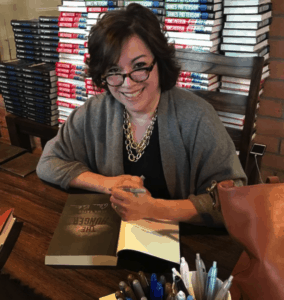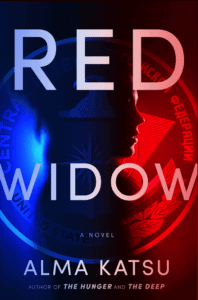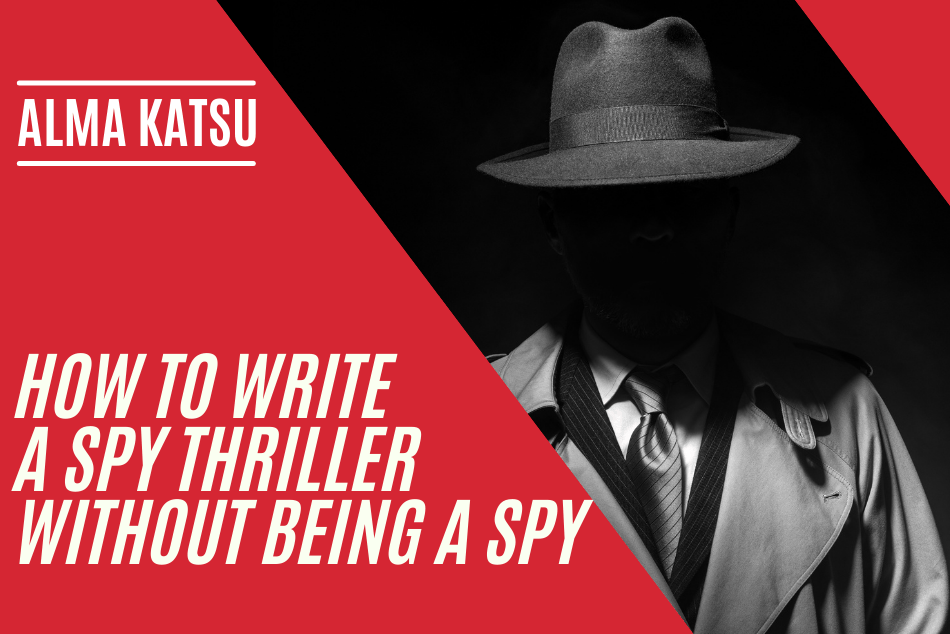How to Write a Spy Thriller Without Being a Spy
You may be surprised to hear that even with a 30+ year career in intelligence working for CIA and NSA and a 10-year career as a novelist, my first a spy thriller, Red Widow, wasn’t published until 2021. If my name is even a tiny bit familiar (and I’d be surprised if it is), it’s because I’ve written five other novels, all five of them a combination of historical fiction and horror or fantasy with nary a secret agent in sight.
And that’s because writing a spy novel is harder than it appears, even for the pros.
If you’ve got your heart set on being the next Ian Fleming or John LeCarre, the following tips might give you food for thought.
It’s not really about politics:
Many of my former colleagues are keen to write a spy novel and that’s because they have killer stories from their careers that they can’t wait to share. Or because they’re keen to show off their extensive knowledge of a specific geographic region or political issue.
And while the political angle is that differentiates spy thrillers from mystery, crime, or suspense, you’d be mistaken if you think that it’s the political aspect that draws people to your book. Overloading a novel with too many facts, names, and backstory is a recipe for disaster. Don’t try so hard to impress your readers with your encyclopedic knowledge of a historical event or gross national product of Kazakhstan. As with other types of exposition, a little bit goes a long way.
The exception is a novel that’s completely immersed in a foreign country. A great example of this is the “Inspector O” novels, set in North Korea. Written by James Church, the pseudonym of a former career North Korea intelligence analyst, these novels perfectly balance subject matter expertise with plot and character development.
As always, character is king:
Readers fall in love with characters, so take no short cuts here. Your characters really have to shine. Make sure your protagonist is interesting and complex, not just an amalgam of stereotypes. Make them real to readers, with problems that the average person can relate to. And don’t forget to give him or her the two most important attributes in the spy business: a conscience and a moral compass.
Make sure your protagonist is interesting and complex, not just an amalgam of stereotypes.
In Red Widow, the main characters’ moral compasses are severely tested. Lyndsey Duncan is a case officer at CIA tasked with finding the mole who is handing over the Agency’s best assets to Russia. Theresa Warner is the Red Widow, wife of a CIA officer who died during an operation inside Russia. The two officers’ lives become entwined over the mole hunt, ultimately causing both women to question what it means to work at CIA, what you owe to your country, and what you owe to yourself.
In designing your characters, you should be aware that the Intelligence Community (IC) has made great efforts in the past couple decades to diversify its workforce. Your main character doesn’t have to be a white male!
Pay attention to timing:
Hitching your plot to a breaking real-life event is tempting, but tricky. Spy thrillers, possibly more than any other genres, are susceptible to the news cycle. It’s often difficult to get agents interest in a story based on a conflict that took place as recently as 10 years ago unless it’s clearly meant as historical fiction. Better to pick something evergreen and then riff on an aspect for your plot.
Don’t fudge when it comes to the IC:
There’s no excuse for mistakes about how the IC works when there’s such a wealth of research materials. CIA’s own website (cia.gov) offers a treasure trove. Next, visit the Center for the Study of Intelligence (https://www.cia.gov/resources/csi/), the Intelligence Community’s own think tank. It can point you to great research, papers, and monographs that can provide both broad information on tradecraft (that’s how the spy business is done) and specific historical events.
CIA is not the only spy agency in the U.S.—there are now 18 federal agencies in the IC (its newest member, the U.S. Space Force, joined in January 2021). Learn more at the Office of the Director of National Intelligence (https://www.dni.gov/index.php/what-we-do/members-of-the-ic or https://www.intelligence.gov/). Maybe you’ll be inspired to set your book at one of the lesser-known but vital agencies that also protect American citizens and interests.
Working in the field is not necessary:
I’m often asked if only spies can write good spy novels. In my opinion, while it helps in understanding spy tradecraft, it’s not absolutely necessary. Some really horrible books have been (poorly) written by former spies, while amateurs have turned out great, gripping espionage yarns.
If you’re not diligent in your writing process you can trip yourself up by straying too close to classified information.
Too, affiliation with the IC is a double-edged sword. You can fall into groupthink very quickly, which makes it hard to come up with the fresh ideas you need to write a book. Secondly, there’s pre-publication review: with a security clearance comes a life-long obligation to let the IC review anything you write that has to do with intelligence work before it’s published. The IC takes it very seriously, and if you’re not diligent in your writing process you can trip yourself up by straying too close to classified information.
Alma Katsu’s Red Widow “captures the reality with deadly accuracy” says Valerie Plame, a sentiment echoed by numerous former CIA officer who have declared the novel the best representation of what it’s really like to work at the Agency. A NY Times Book Editors’ Choice, Red Widow is in development with FOX for a TV series.
 Alma Katsu’s books have received starred reviews from Publishers Weekly, Booklist, and Library Journal, been featured in the NY Times and Washington Post, been nominated and won multiple prestigious awards, and appeared on numerous Best Books lists including NPR, the Observer, Barnes and Noble, Apple Books, Goodreads, and Amazon.
Alma Katsu’s books have received starred reviews from Publishers Weekly, Booklist, and Library Journal, been featured in the NY Times and Washington Post, been nominated and won multiple prestigious awards, and appeared on numerous Best Books lists including NPR, the Observer, Barnes and Noble, Apple Books, Goodreads, and Amazon.
RED WIDOW is her first spy novel, the logical marriage of her love of storytelling with her 30+ year career in intelligence. As an intelligence officer, Ms. Katsu worked at several federal agencies as a senior analyst where she advised policymakers and military commanders on issues of national security. The last third of her government career was spent in emerging technologies and technology forecasting. She was also a senior technology policy analyst for the RAND Corporation and continues as an independent consultant and technology futurist, advising clients in government and private industry.
Ms. Katsu also writes novels that combine historical fiction with supernatural and horror elements. THE HUNGER (2018), a reimagining of the story of the Donner Party, was named one of NPR’s 100 favorite horror stories, was on numerous Best Books of the Year lists, and continues to be honored as a new classic in horror. Her first book, THE TAKER (2011), was named one of the top ten debut novels of 2011 by Booklist.
horror elements. THE HUNGER (2018), a reimagining of the story of the Donner Party, was named one of NPR’s 100 favorite horror stories, was on numerous Best Books of the Year lists, and continues to be honored as a new classic in horror. Her first book, THE TAKER (2011), was named one of the top ten debut novels of 2011 by Booklist.
Ms. Katsu has relocated from the Washington, DC area to the mountains of West Virginia, where she lives with her musician husband Bruce and their two dogs, Nick and Ash.





